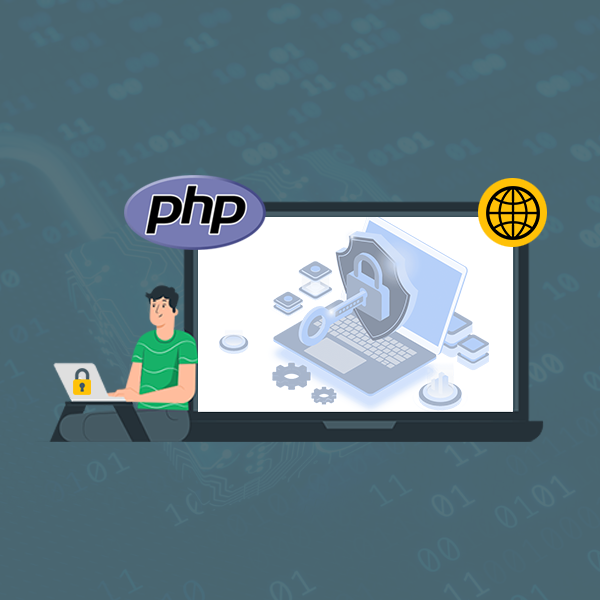Top PHP Website Security Tips to Keep Your Site Safe from Cyber Attacks-Connect Infosoft
Technology is rapidly evolving. There is a strong probability that one such innovation will astound humanity as it has in the past. These developments have many benefits and have made our lives easier, but they also have significant drawbacks.
Different content management systems (CMSs) are utilized to construct public platforms, making them an ideal target for cybercriminals. Phishing and hacking are the most common crimes that website owners face on a regular basis.
You cannot be protected against cybercrime unless you have an effective defence mechanism in place.
HTML coding and JavaScript can make a website look highly attractive, but they cannot make the website safe. Many popular websites, such as WordPress, Joomla and Drupal, use PHP scripting.
All PHP development companies throughout the world utilize security solutions to secure their websites from cybercriminal threats. Some PHP-based website security solutions include:
Keep PHP and Frameworks Up to Date:
Regularly update your PHP version and any frameworks or libraries you use. New updates often include security patches that address vulnerabilities.
Use Secure File Permissions:
Set appropriate file and directory permissions to prevent unauthorized access. Restrict write permissions to only necessary files and directories.
Validate User Input:
Implement strict input validation and filtering techniques to prevent common security vulnerabilities like SQL injection, cross-site scripting (XSS) and remote code execution.
Sanitize and Escape Output:
Always sanitize and escape any data that is displayed on your web pages to prevent XSS attacks. Use functions like `htmlspecialchars()` or template engines that automatically escape output.
Implement Password Security Measures:
Enforce strong password policies for user accounts. Store passwords securely using bcrypt or Argon2 hashing algorithms and avoid storing plaintext passwords.
Use Parameterized Queries or Prepared Statements:
Use parameterized queries or prepared statements when interacting with databases to prevent SQL injection attacks. Avoid constructing SQL queries using string concatenation.
Protect Against Cross-Site Request Forgery (CSRF):
Implement CSRF tokens in forms and verify them on the server side to prevent attackers from executing unauthorized actions on behalf of your users.
Implement Session Security:
Use secure session management techniques, such as using secure cookies, regenerating session IDs and enforcing session timeouts.
Apply Input Validation and Filtering:
Validate and sanitize all user-supplied data, including form inputs, query parameters and file uploads. This helps prevent malicious data from entering your application.
Secure Configuration and Error Handling:
Ensure that sensitive configuration files, such as database credentials, are stored outside the web root directory. Display informative error messages only during development and use a generic error page in production.
Implement Two-Factor Authentication (2FA):
Add an extra layer of security by implementing two-factor authentication for user logins. This can help prevent unauthorized access even if passwords are compromised.
Regularly Monitor and Log Activities:
Implement logging and monitoring mechanisms to detect any suspicious activities. Regularly review logs and analyze any potential security threats.
Conclusion:
There are various alternative methods for completely securing your website. Different methods are used by developers all around the world to upgrade and change PHP-based websites. New developments are introduced on a continuous basis to strengthen the security of websites and apps of all kinds.
It is very important to find the weaknesses and loopholes in the development of the website and work for their treatment. Only a professional developer can edit the website and make it more secure by indulging various security methods. If you want to build a website or make your existing website more secure, you should contact the experts at Connect Infosoft. Connect Infosoft has 23+ of experience in hiring for web development services.
TAGS: Top PHP Website Security Tips to Keep Your Site Safe from Cyber Attacks, Looking for PHP Development Company, Hire PHP8 Developers, Connect Infosoft Technologies, Looking for PHP8 Development Service, Hire PHP8 Development Solution, Hire PHP8 Customization Services
